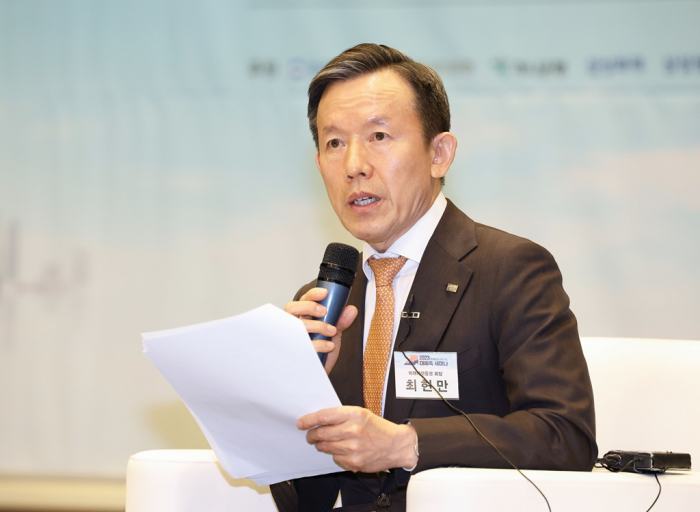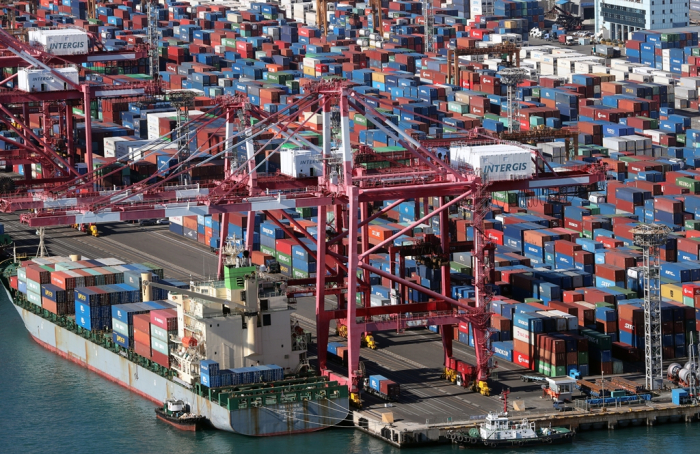Korean stock market
Korean stocks with healthy earnings to shine in H2 2023
The economy and markets are likely to stay volatile in H1 given inflation, rising interest rates, the global downturn and war in Ukraine
By Dec 15, 2022 (Gmt+09:00)
4
Min read
Most Read
LG Chem to sell water filter business to Glenwood PE for $692 million


Kyobo Life poised to buy Japan’s SBI Group-owned savings bank


KT&G eyes overseas M&A after rejecting activist fund's offer


StockX in merger talks with Naver’s online reseller Kream


Mirae Asset to be named Korea Post’s core real estate fund operator



South Korea’s Mirae Asset Securities Co. expected local shares with strong earnings including growth stocks to rally in the second half of next year even though the overall domestic market will continue to suffer from high volatility in the first six months, its chairman and CEO Choi Hyun-Man said.
Investors should focus on income assets such as bond exchange-traded funds (ETFs) in the first half and gradually increase holdings of “quality stocks” backed by healthy profits from the second, Choi said in a seminar on the economy and financial markets in 2023 hosted by The Korea Economic Daily on Thursday.
“High volatility in the market will haunt investors until the first half of next year. But bearish factors are heading to a peak and we will see opportunities coming in the second,” Choi said, adding corporate earnings are predicted to improve in the July-December 2023 period.
“Investors will need to buck the trend by focusing on tech and growth stocks in line with the Fed’s policy shift,” he stressed, referring to the Federal Reserve. Global stock markets, including those in South Korea, lost ground as the US central bank aggressively raised interest rates to stem inflation in the world’s top economy.
Choi said, however, investors must select “quality innovators,” which deliver strong earnings rather than showing illusions, adding those stocks will benefit from government policies and the reorganization of the global supply chain to generate strong earnings amid an economic downturn.
His top picks were stocks in the secondary battery, green energy, semiconductor and defense sectors at home and abroad.
UNCERTAIN H1
The seminar participants agreed that uncertainties surrounding South Korea, Asia’s fourth-largest economy, are likely to remain in the first half, given rampant inflation, aggressive interest rate hikes worldwide, a global economic downturn and the sustained war in Ukraine.
“There is nothing certain but the fact that everything is uncertain,” said Korea Institute for Industrial Economics and Trade President Ju Hyeon.
Ju expected both exports and domestic consumption to weaken next year. He forecast sluggish overseas sales of key products such as semiconductors.
South Korea is home to the world’s two largest memory chipmakers – Samsung Electronics Co. and SK Hynix Inc.
Semiconductor exports are predicted to fall 9.9% in 2023, while overseas sales of petrochemicals and refined products are likely to slide 14.2% and 11.9%, respectively, he said. Only four sectors – shipbuilding, secondary battery, bio-health and automobile industries – will report export growth, he added.
“Exports were strong in the first half of this year and last year because rising commodity costs pushed up product prices, not because corporate fundamentals improved,” Ju emphasized. “Once commodity prices stabilize, export values will fall.”
The country already reported a decline in overseas sales for a second straight month in November on sluggish semiconductor sales, darkening the outlook for the export-dependent economy.

INTEREST RATES TO STAY HIGH
Major central banks slowed the pace of tightening as inflation showed signs of easing, but interest rates are likely to remain high, participants said.
“The Fed has raised interest rates significantly so far this year, but US core inflation has not changed much,” said Korea Institute for International Economic Policy President Kim Heungchong.
“The terminal rate could rise to 5.25-5.5%, higher than an expected 5.1%,” Kim said, referring to a point where officials expect to end the rate hikes.
On Wednesday, the Fed raised its benchmark interest rate to the highest level of a targeted range between 4.25% and 4.50% in 15 years, indicating that the fight against inflation is not over despite some promising signs lately.
Such a tightening stance is expected to continue to weigh on South Korea’s economy, especially in the first half.
The Bank of Korea expected the economy to grow 1.7% next year with 1.3% in the first half and 2.1% in the second.
Mirae’s Choi recommended investors focus on bonds during the first six months, saying “it is still proper to invest in bonds. But it is better not to extremely raise bond holdings but to shift to stocks when the markets are geared up for rallies and the global tightening policy is over.”
Write to Hyun-Woo Lim and Se-Yeong Choi at tardis@hankyung.com
Jongwoo Cheon edited this article.
More to Read
-
 EconomyKorea exports dip for 2nd month, growth slows to 1-year low
EconomyKorea exports dip for 2nd month, growth slows to 1-year lowDec 01, 2022 (Gmt+09:00)
3 Min read -
 Korean stock marketKorea's Kospi plunges to year's record low close on foreign selling
Korean stock marketKorea's Kospi plunges to year's record low close on foreign sellingSep 25, 2022 (Gmt+09:00)
3 Min read
Comment 0
LOG IN


